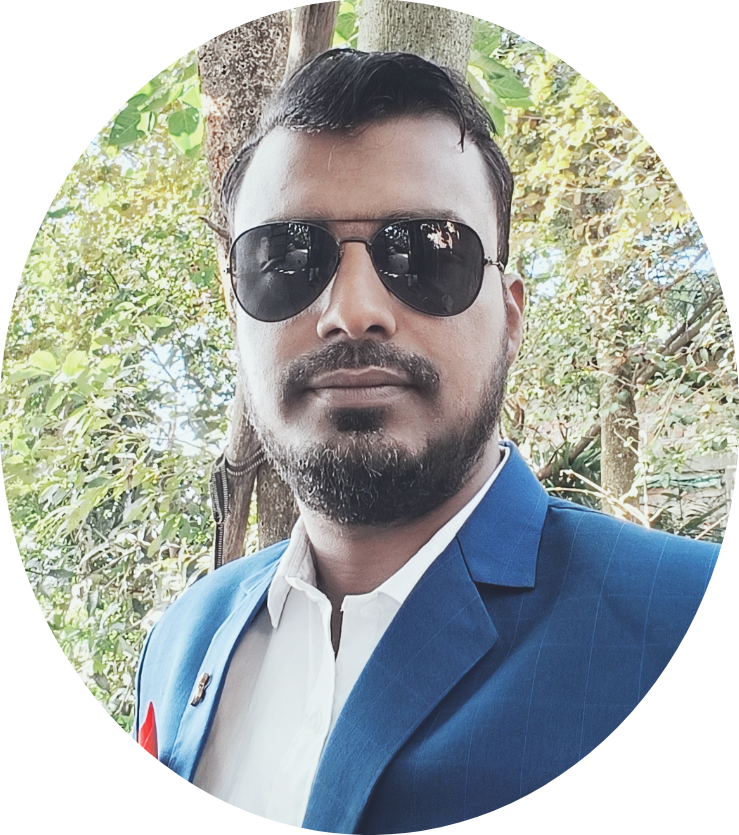Assam TET (Teachers Eligibility Test), Secondary TET Recruitment – BTC TET- General Science

1। In case of human body fats are stored in-
a. Kidney
b. Adipose tissues
c. Liver cells
d. Brain
Ans। b. Adipose tissues
2। plasmid is present in
a. Virus
b. Fungi
c. Bacteria
d. Protozoa
Ans। c. Bacteria
3। Major function of human ear is hearing and
a. Balancing
b. Coordination
c. Metabolism
d. Digestion
Ans। a. Balancing
4। Malaria is caused by
a. Virus
b. Protozoan
c. Fungi
d. Bacteria
Ans. b . Protozoan.
5. The largest phylum in animal kingdom is
a. Mollusca
b. Arthropoda
c. Porifera
d. Chordata
Ans. b. Arthropoda.
6. Major excretory product in case of human is
a. Ammonia
b. Uric acid
c. Urea
d. Ammonium chloride
Ans. c. Urea.
7. The ratio between the lengths of small intestine and large intestine in human is
a. 8:1
b. 7:2
c. 6:2
d. 5:1
Ans. d. 5:1 .
8. Growth hormone is secreted from
a. Adrenal gland
b. Pituitary gland
c. Hypothalamus
d. Thyroid gland
Ans. b. Pituitary gland.
9. Which of the following hormone is related with diabetes
a. Testosterone
b. Thyroxine
c. Prolactin
d. Insulin
And. d. Insulin.
10. Which of the following is vestigeal organ in human
a. Hair
b. Intestinal villi
c. Appendix
d. None of these
Ans. c. Appendix.
11. Sunlight is required to synthesis of
a. Vitamin E
b. Vitamin C
c. Vitamin K
d. Vitamin D
Ans. d. Vitamin D.
12. The home of Asiatic lion is
a. Manas Wildlife Sanctuary
b. Gir Forest
c. Kaziranga Forest
d. Corbett National Park
Ans. b. Gir Forest.
13. Who discovered the structure of DNA
a. J.D. Watson
b. Alexander Flamming
c. Lois Pesteur
d. Robert Brown
And. a J. D. watson.
14. The genetic material of human
a. RNA
b. Plasmid
c. DNA
d. Mitochondrial DNA
Ans. c. DNA.
15. Which of the following is called citrus fruit
a. Banana
b. Jackfruit
c. Watermelon
d. Lemon
Ans. d. Lemon.
16. Lactose is found in
a. Orange
b. Lemon
c. Milk
d. Liver
Ans. c. Milk.
17. Which of the following don’t match properly
a. Antibody – B cells
b. RBC – Haemoglobin
c. CNS – Brain
d. Femur – Muscle
Ans. d. Femur- Muscle.
18. AIDS is caused by
a. HIV virus
b. Poliomyelitis virus
c. TMV virus
d. HPV virus
Ans. a. HIV virus.
19. Allergy is related with
a. Antibody E
b. Antibody G
c. Antibody M
d. Antibody D
Ans. a. Antibody E.
20. Ecology is the study of
a. Environment
b. Internal Organ
c. Insects
d. Fishes
Ans. a. Environment.
21. Which of the following acts as a natural indicator for pollution in water
a. Algae
b. Lichen
c. Fungi
d. Fern
Ans. b. Lichen.
22. Air pressure can be measured by a device called
a. Thermometer
b. Barometer
c. Altimeter
d. Voltometer
Ans. b. Barometer.
23. LED means
a. Light Emitting Diodes
b. Light Entering Device
c. Light Energy Device
d. Light Explosive Device
Ans. a. Light Emitting Diodes.
24. Who discovered electron
a. Alva Edison
b. Nikola Tesla
c. J J Thomson
d. Einstein
Ans. c. J J Thomson.
25. Which of the following is less reactive
a. Gold
b. Lead
c. Calcium
d. Silver
Ans. a. Gold.
26. Which metal is liquid at room temperature
a. Gold
b. Silver
c. Sodium
d. Mercury
Ans. d. Mercury.
27. Which of the following is called botanical snake
a. Algae
b. Fungi
c. Pteridophytes
d. Bryophytes
Ans. c. Pteridophytes.
28. The process through which plants produce starch is called
a. Photosynthesis
b. Transpiration
c. Respiration
d. Evaporation
Ans. a. Photosynthesis.
29. Which of the following is not an example of oviparous organism
a. Ant
b. Butterfly
c. Insect
d. Buffalo
And. d. Buffalo
30. Which of the following is responsible for the photosynthesis process
a. Auxin
b. Chlorophyll
c. Protein
d. Temperature
b. Chlorophyll.
31. The last part of human brain is called
a. Cerebellum
b. Cerebrum
c. Medulla Oblongata
d. Pons
Ans. c. Medulla Oblongata.
32. The study of mushroom is called
a. Entomology
b. Mycology
c. Phychology
d. Zoology
Ans. b. Mycology.
33. Which of the following gas is predominant in the sun
a. Helium
b. Hydrogen
c. Nitrogen
d. Argon
Ans. b. Hydrogen.
34. Major function of RBC is
a. Protect the body from pathogens
b. Stimulation of cell division
c. Oxygen transportation
d. Helps in blood clotting
Ans. c Oxygen transportation.
35. Which organ of human body secrets concentrated HCL
a. Liver
b. Stomach
c. Kidney
d. Brain
Ans. b. Stomach.
You Tube Link: https://youtu.be/gP1jjkr5of0

